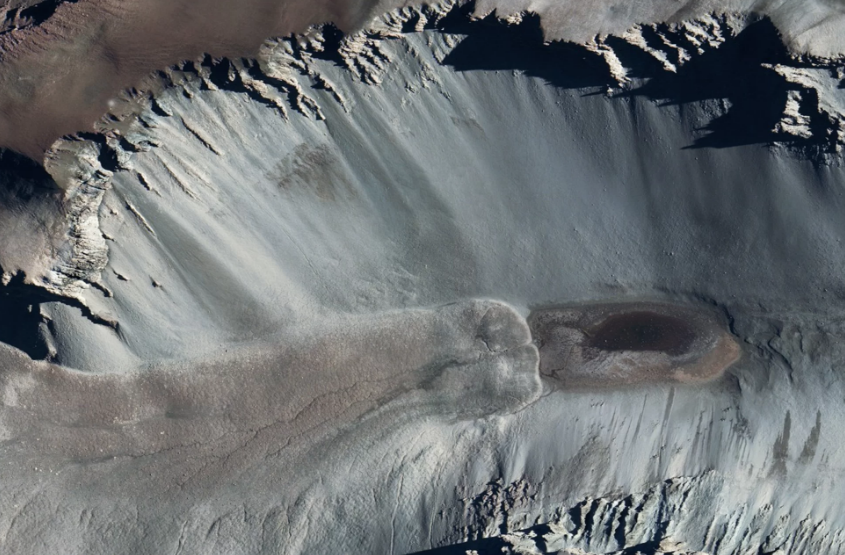
In Antarctica, there is a pond so salty that it is impervious to freezing and remains liquid throughout the harsh arctic winters. To make matters even stranger, scientists are clueless as to how the lake got there, calling it as rare as a "pink elephant." However, seeing as Antarctica is as close as we can get to studying Mars without actually going to the Red Planet, scientists are keen to understand the water's mysterious origins.
The Antarctic pond is a true anomaly, and the description "pond" is sort of a stretch seeing that Don Juan Pond is only about 4 inches deep. Still, the dense salt deposits keep the pond so saline-rich that it never freezes. The salt also changes the water's composition, making its viscosity more like a light syrup than like the water that flows from our taps. The pond's salt is actually calcium chloride, a more concentrated form of salt, unlike the sodium chloride we are used to at our dinner table.
Related: Flowing water on Mars? Groundbreaking NASA discovery was just sand and dust avalanches
The pond is weird, but two characteristics stand out most. Firstly, we have no idea where the salt came from and how it gathered together in such high density. Second, the pond's chemical composition is incredibly pure, and scientists are still scratching their heads trying to figure out why.
"It's rare for nature to produce a water solution so pure," said Jonathan Toner, a geochemist at the University of Washington who studied the pond. "It's kind of like walking into the room and seeing a pink elephant," he told Live Science.
Related: NASA Orion spacecraft that will bring humans to Mars will undergo moon test mission in 2019
Understanding the pond's origins are not only important for earth science, but could also expand our knowledge of extraterrestrial landscapes. In addition to the pond, the area also has dark surface streaks, indicative of the water's existence. These streaks are similar to those found on Mars—a suggestion of water on the Red Planet, and as any science fiction film has taught us, where there is water, there is life. Knowing how the dark streaks were formed around Don Juan Pond would help us understand how they got on Mars. And from there, who knows.
"If there is water on Mars, it's probably going to look a lot like this pond," Toner said in a statement. "Understanding how it formed has large implications for where would you expect to find similar environments on Mars."
In 2013, scientists first believed they had uncovered the truth about the pond's origins, and a paper published online in Scientific Reports proposed that the pond was a result of calcium chloride in the surrounding soil absorbing water from the atmosphere,a biological process known as deliquescence, and then being pushed together by snow melts. But could this reasoning be wrong? Toner and and fellow researchers at the University of Washington believe so, and have outlined not only this study's caveats but also proposed their own theory on the lake's origins in a paper published online in Earth and Planetary Science Letters .
Instead, the team propose that a groundwater source deep beneath the Earth's surface is the pond's source. The study suggests that over the past tens of thousands of years water has sifted from this source, through the frozen Antarctic soil and interacted with minerals on its way out picking up salt. In addition, the study suggests the extensive salt rich groundwater source not only feeds into the pond but also another lake in the frozen valley.
To back this claim, the team actually found this underground water source and took samples. These samples matched the chemical composition of the pond with an "uncanny accuracy" Toner told Live Science. Still, this does not prove that the underground water is the source of the pond. Toner plans to travel to Antarctica next month to gather further evidence to prove this hypothesis. For now, the two theories remain just that, and we aren't completely sure why the mysterious pond exists.
Uncommon Knowledge
Newsweek is committed to challenging conventional wisdom and finding connections in the search for common ground.
Newsweek is committed to challenging conventional wisdom and finding connections in the search for common ground.
About the writer
To read how Newsweek uses AI as a newsroom tool, Click here.








